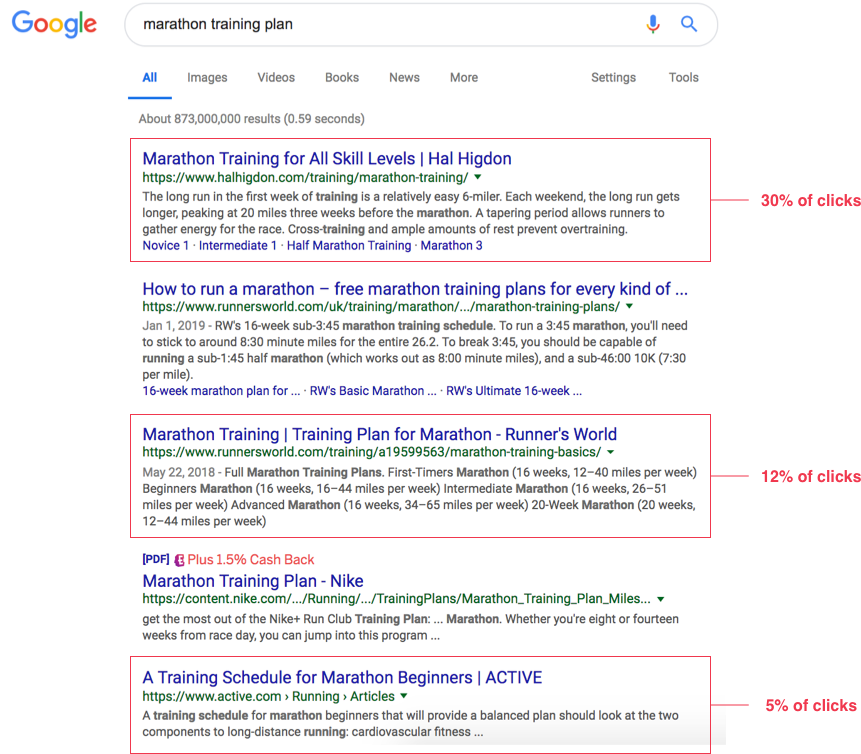

Contact Jen to learn about how we can deliver results for you.
You’re running a successful paid search campaign (AKA Search Engine Marketing, or SEM). But ranking organically takes time and continuous effort. Knowing that, why go through all the effort of an SEO content strategy to improve your rankings?
We get this question a lot, so we gathered the top research that proves organic search—search results you can’t pay for—is still very, very important for business.
You’re most likely aware that Search Engine Optimization is a key component of any successful marketing plan because it meets potential customers who are at the point of consideration for a product or service. It’s generally one of the first tasks for clients who need a new or updated website and for new brands and initiatives entering the marketplace.
Search engines rank websites based on a variety of factors. One of those factors is how often users choose that website out of all the options on the search results page. In a 2018 study, Smart Insights found that for general and long-tail keyword searches, the result in the first position gets an average click-through rate (CTR) of around 30%. That number quickly drops to around 12% for the 3rd result on the page and to 5% for the 5th result on the page. Domains that rank on page 2 and beyond get close to zero clicks. (Do you know where your website ranks for your keywords?)
Below is an example of what this looks like in Google search for results on a query about marathon training plans. The first result will nab about 30% of the clicks for that search.

If you’re already paying to be in search results for your top keywords, why worry about optimizing for unpaid organic search results? After all, there are many factors that contribute to search engine rankings, and they take time and effort to maintain. (More on that later.) Plus, shady SEO tactics of the past, like keyword stuffing and buying links, are dead, and the Internet is a better place for it.
71% of searches result in a page 1 Google organic click.
Think about that: People would rather start their search all over again than click something that pops up on the 4th page of results. Ouch. (Have you checked to see where you rank yet?)
Source: Zero Limit Web.
Organic visitors tend to be higher quality than visitors from any paid channel, including paid search. Is this true for you? Log into your Analytics and compare the bounce rate, time on page and conversion rates for visitors from organic vs. campaigns. We see that about 9 times out of 10, visitors who come from organic search convert at significantly higher rates.
Since March 2018, there’s been a universal decline in the share of organic traffic for companies that aren’t keeping up with frequent, high-value content publishing. That’s because Google’s latest algorithm updates look to content recency and relevance as one of the main cues that content should appear in results. To keep up, you’ll need to stay on top of all the factors for which you can optimize.
We hinted that earning higher rankings can be hard work. Here are some of the top factors search engines consider when ranking websites and what to do about them:
Being in the top 5 results is the biggest indicator that your target audience will find you and find you relevant. Earning one of those top spots is hard work that involves regularly publishing quality content. But the data shows again and again that this hard work pays off.
Want to know more about these terms, the process or how paid plus organic can impact your organization? Reach out to our digital team for an SEO audit of your current on-site and off-site factors.